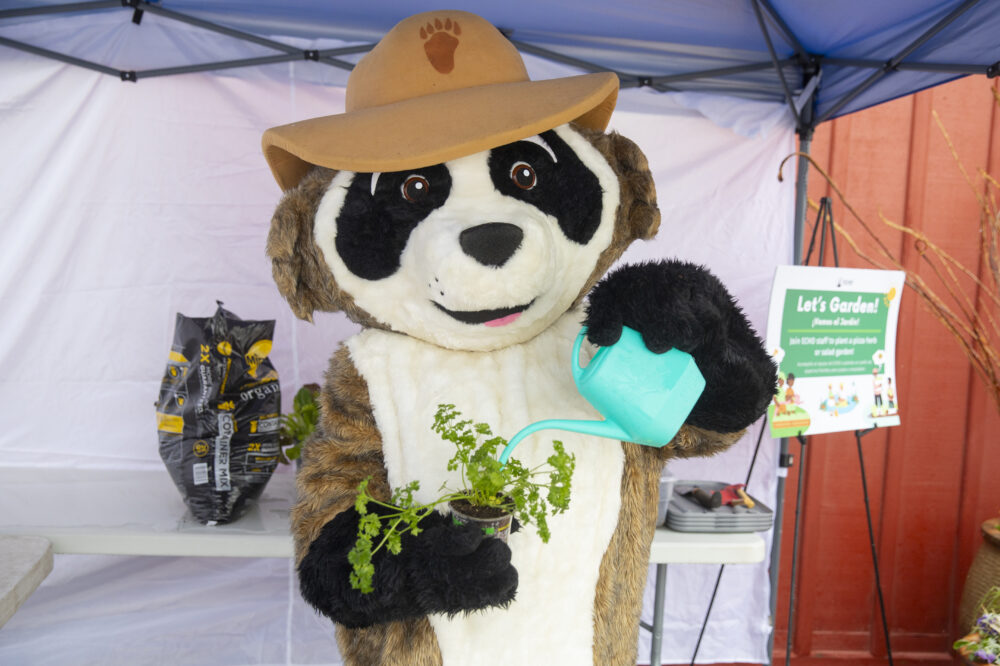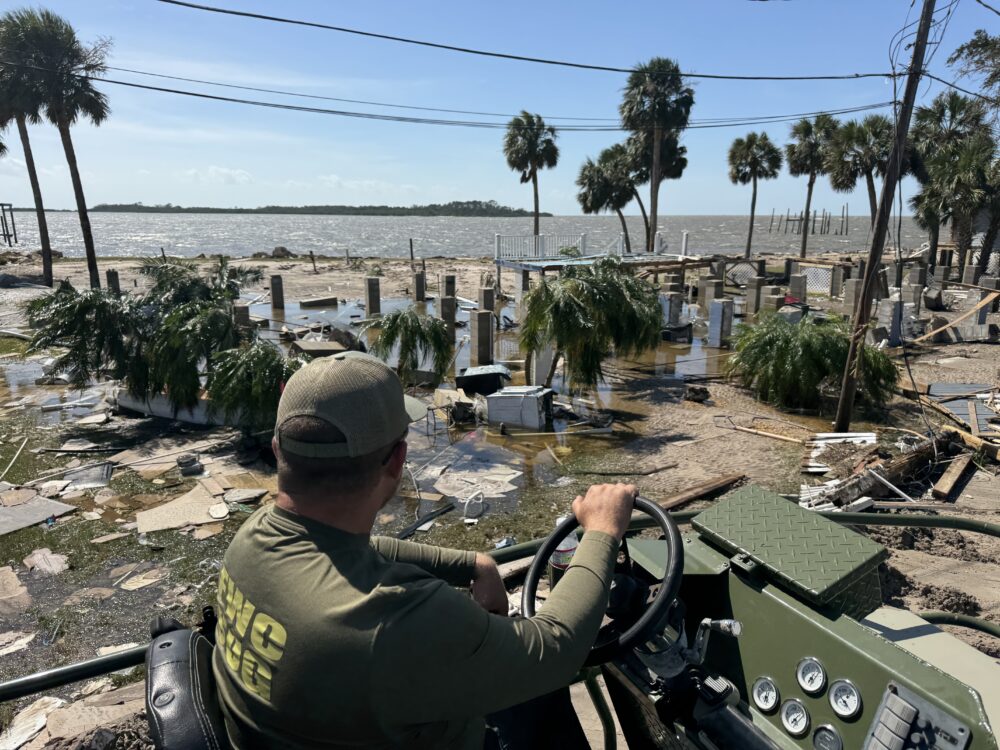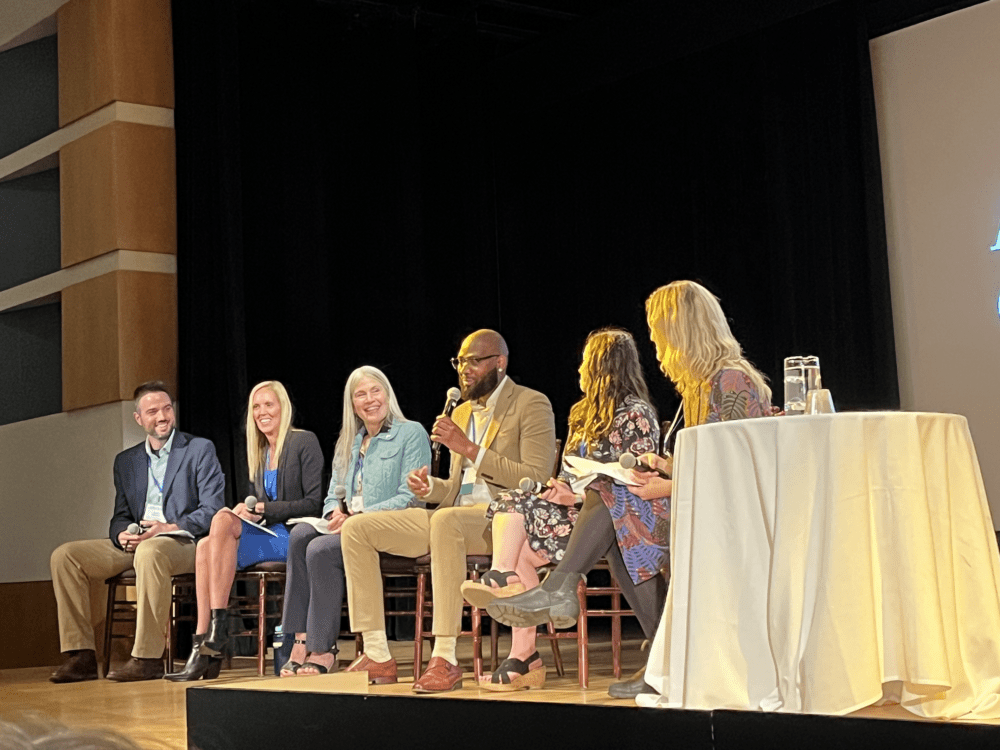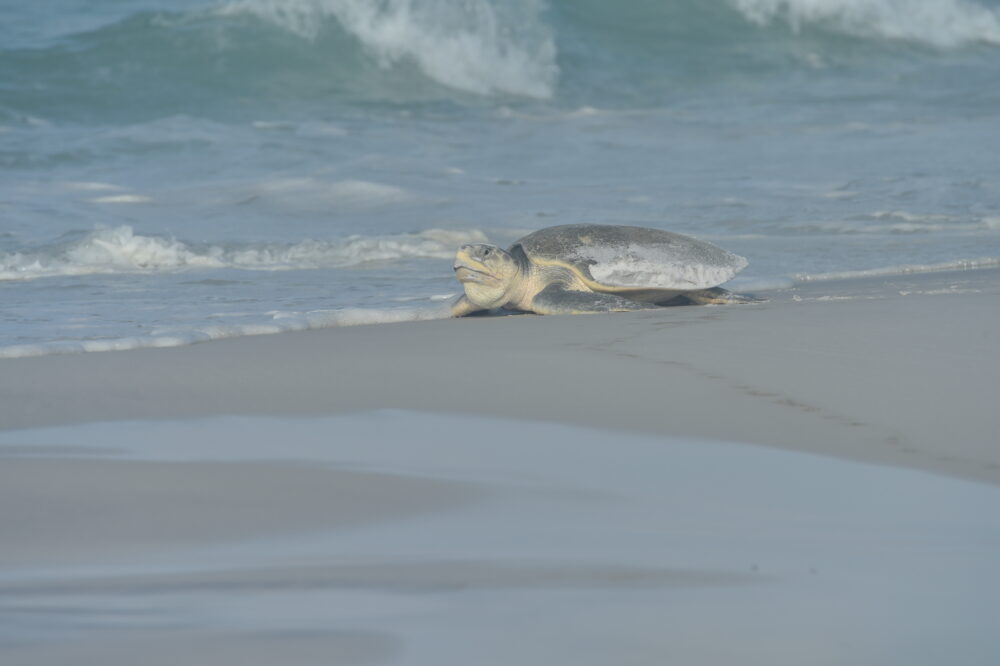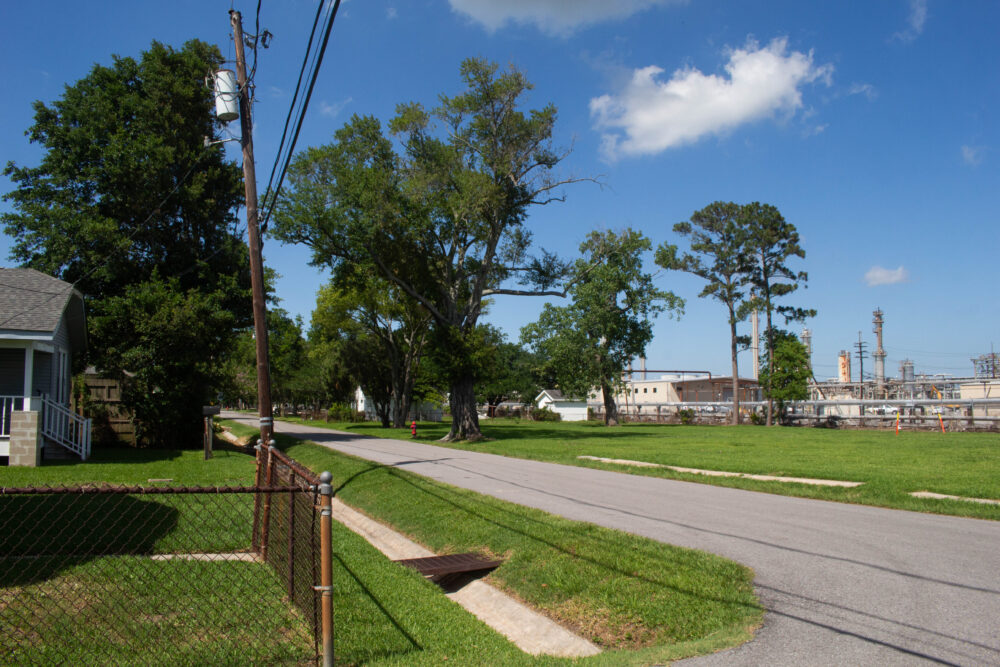We have much more to do and your continued support is needed now more than ever.
Low on Emissions, Big on Taste
By Elisabeth Bailey
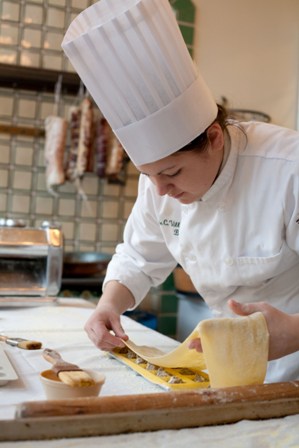
While incorporating sustainability into culinary arts has become popular in many schools, Kendall has been a leader in the field since 2005 when Dean Koetke first assumed his responsibilities at the college.Under his guidance, Kendall has developed a sustainability curriculum for the classroom as well as a set of operational and business practices for the institution. These practices include multi-faceted energy efficiency and conservation measures, large scale composting and recycling initiatives, locally grown and organic ingredient sourcing for Kendall’s many kitchens-and, of course, the garden. “What’s neat about it is that it’s in a very visible part of the campus, students can go out and pick stuff anytime, find something to munch, or just walk around in it,” says Koetke. The majority of produce from the garden supplies The Dining Room at Kendall College, the school’s public restaurant.
Acknowledgement of Kendall’s progress has come from many quarters. In 2007, Kendall received the Foodservice Consultants Society International (FCSI) Green Award, which recognizes exemplary efforts in ecology and environmentally sensitive hospitality operations. In 2008 Kendall became the first culinary school to operate a Certified Green RestaurantTM by the standards of the Green Restaurant Association. In this role, Kendall produced the Green Kitchen Video which features instructions for lowering the carbon footprint of any foodservice operation.
In April 2009, the National Restaurant Association invited Kendall College to partner with their initiative Conserve: Solutions for Sustainability. Their mission is to assist the nation’s nearly one million food service establishments to reduce their ecological impact while maintaining economic vitality. According to National Restaurant Association president Dawn Sweeney, “Today’s students are tomorrow’s industry leaders and culinary stars, so it is crucial to our industry’s future success that awareness, knowledge and commitment to environmental sustainability are established at every level.” Also in 2009, Kendall partnered with the Center for the Advancement of Foodservice Education (Cafe) to sponsor the Cafe/Kendall College Green Award-the first ever national award to recognize secondary and postsecondary culinary arts programs for their commitment to sustainability.
Green Cuisine
While a clear industry leader, Kendall has extremely good company among some of the other culinary schools in North America, both big and small. The Culinary Institute of America (CIA), with campuses in New York, Texas, and California, also puts a strong emphasis on sustainability in their program. As part of their program, students in their junior year travel to a renowned culinary region such as California, Italy, or Spain to experience a culture with a rich tradition of local food. In their senior year, students study Food Ecology and “green” restaurant operations, with an emphasis on how to make a restaurant a financial success while maintaining a commitment to cooking with only local foods.
As at Kendall, sustainability measures go far beyond the classroom. With a whopping total of 41 kitchens and bakeshops, CIA spends more than $500,000 a year on produce, dairy, meat, and eggs from local farms for the New York campus alone. The Greystone Student Garden on the California campus provides produce for a local farmer’s market, while the New York campus residence halls have been recognized by New York State for their energy reduction measures, including the use of geothermal heat pumps. In 2009, CIA hosted a sustainable seafood conference for the public, featuring speakers on how ecology, political economics, and culture affect sea life populations.
On the New York campus, students learn their craft by staffing the local food focused St. Andrew’s Café. This past December, the cafe joined the Dining Room at Kendall College as a Certified Green Restaurant, a designation that takes into account all areas of operation, including food sourcing and purchasing, energy disposal, and water usage. Currently, CIA is renovating the café with eco-friendly materials and an emphasis on improved energy usage. The new dining room is expected to be unveiled in August 2010.
Great Local Grub
While schools such as Kendall and CIA are marking the sustainability trail for larger institutions and those with a haute cuisine focus, many smaller schools and programs that serve a wider population are making impressive contributions to the culture of sustainability in culinary education. Skagit Valley Community College, a two-year community college in northwest Washington State, has long emphasized minimal resource use and relationships with local producers. Those efforts were recognized and supported in 2007 when the Washington State Board for Community and Technical Colleges awarded an innovation grant to the Culinary Arts Program at Skagit. The school used the grant to develop a program called Community, Hospitality, Education, Farms, and Sustainability (CHEFS). The CHEFS program emphasized building relationships with local, earth-friendly chefs who are already using sustainable practices as well as with area farmers and ranchers. The State Board is using the results of their program as a pilot for other schools in the state.
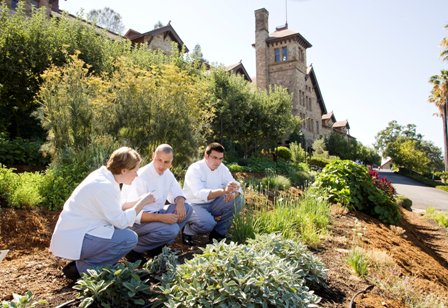
“Before we received this grant we were already buying local as much as we could,” says chef and educator Martin Hahn. “This extra funding allowed us to expand educational opportunities and bring local food producers and chefs into the college to show students how they practice sustainability in their operations.” The culinary department used approximately 45 different products from local producers in Skagit Valley last year. Food items from at least eight of those producers were used on a weekly basis. “Using local suppliers teaches our students how to keep a flexible menu and plan around the seasonal harvests,” Hahn said. Preparing fresh, local food requires increased planning and different food preparation techniques as well as learning how to order in a timely manner to reduce food waste.
In addition to using local food products, the culinary arts program at Skagit is using a variety of sustainable practices in their operations and facility management. Compostable, corn-based products were introduced last year, including plates, cups and utensils. Other sustainable practices include composting pre- and post-consumer kitchen scraps, growing herbs outside the bakery kitchen window, and giving coffee grounds to the biology department to feed composting worms. Used fryer oil is given to the college’s Diesel Technology program to be converted into diesel fuel, and then given to the transportation department to use as fuel for their trucks-a great example of inter-departmental sustainable practices. This efficient use of used oil saves the culinary program over $400 per year in disposal costs.
Most notable, however, are the ways in which recent graduates from the Culinary Arts program at Skagit are putting their education to use. “One of the students from here became the chef at the hospitals; he took what he learned from us and he’s using it to benefit our community,” said Chef Hahn. “Another woman working with us is putting together a delivery service with local farmers. She’s creating links in the chain for local food. Now chefs at area restaurants can consult a menu of local, sustainable items to order instead of contacting each farmer personally to see what they have. We need those links for sustainability to work.”
Drip by Drip
Sustainability is an ongoing process–nobody knows this better than the people navigating the frontier.”We’re leading the culinary school world in terms of sustainability and how to teach it,” commented Dean Koetke. “One of the things that we’ve spent an awful lot of time on is traveling around talking to other educators about how they can add sustainability to their programs. We talk about the challenges they overcome and what we have said all along is that our stance is that sustainability is a journey of baby steps, and it’s a journey with no end. When you keep those things in mind, it helps frame what sustainability is all about. If you’re waiting for the big moment when you get to change everything, it doesn’t happen. You change your paper towels. You add low-flow aerators. It’s all the “ands”. Not every one of those steps along the paths is memorable, but once you take a step along the path, you never really come off it.”
An essential part of sustainability, Koetke finds, is simply keeping your eyes open for steps to take.”When we evaluated our kitchens for efficiency, we found all kinds of little ways we were losing energy. For instance, gaskets on a cooler were ripped. We’ve got a million gaskets here! They rip and nobody notices. Here and there we have a slightly leaky faucet. Drips happen. They tend not to call your attention. Yet one drop a second equals 1,300 gallons of water down a drain a year.”
“For the longest time, we had these chef hats-disposable-and one day a student in one of the classes said, ‘You know, these hats are really stupid. We’re throwing them in the garbage and sending them to the landfill. This doesn’t make sense.’ The instructor mentioned it to me and it was like a blinding flash. We got a group together to look at options, and nine months ago came up with a cotton washable hat for all the students. We’ve taken them out of the landfills-and what’s more, the cotton hats are cheaper in the long run. They have worked out splendidly.”
“One of the advantages of teaching is being surrounded by young people with insights that challenge us to do our jobs better,” he said. “That’s to be embraced. When I was getting my masters degree one of my professors said to me, ‘Never leave until you have changed the school positively somehow.’ This concept that you have the responsibility to improve your school is powerful to me. Students have the ability to affect change, every one of them… be that set of eyes that sees.”





